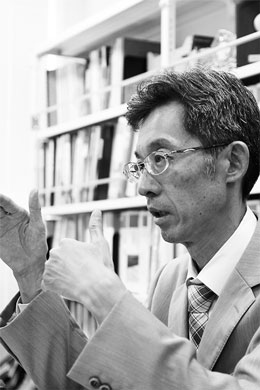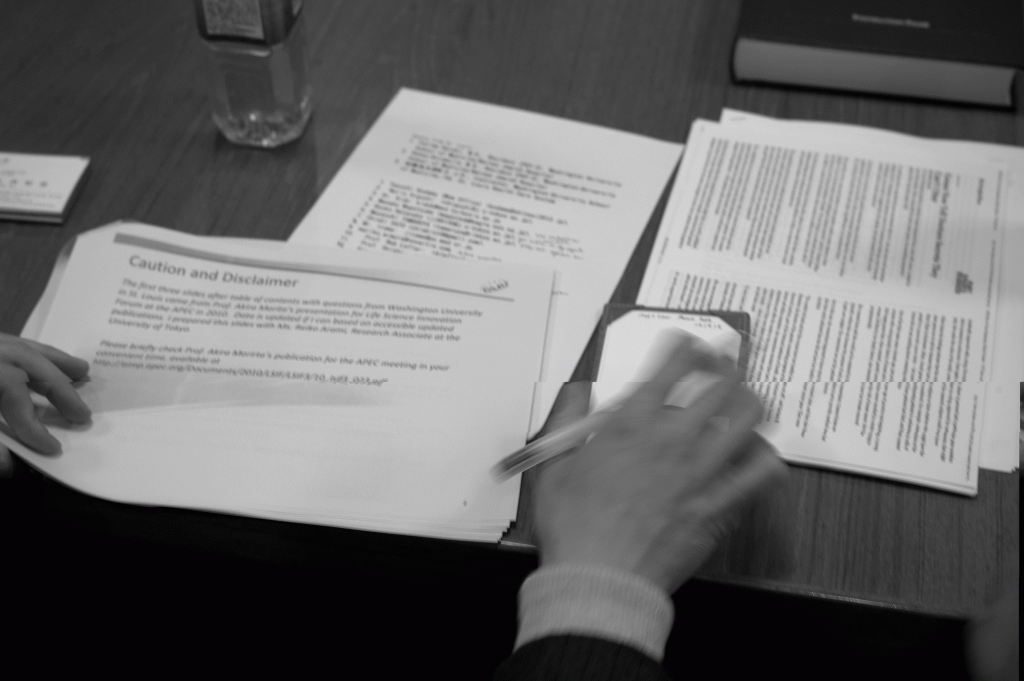Addressing Energy Issues by Studying Social Systems as a Whole
Ryuji Matsuhashi / Professor, The University of Tokyo, Graduate School of Engineering

Q:The title of your PhD thesis dissertation was Integrated Energy Systems. What sparked your interest in the field?
Matsuhashi: One of my advisors was a pioneer in the field of control engineering. By the time I was in graduate school the field was more or less mature and there were not many new directions left to research. My advisor told me: “The control of social and regional systems is going to be much more important than controlling motors and machines in the years to come.” and he shifted his focus to work on finding solutions for global warming problems and ways of optimizing energy systems. This was when I was working toward my doctorate. In 1988 the Intergovernmental Panel on Climate Change was formed, and the idea of cutting CO2 emissions by 20% was raised for the first time at the Toronto meeting. The trends in the wider world just happened to coincide with my doctoral thesis, and I’ve been in the field ever since.
Q: Was it not a heavy burden to work on integrated energy systems as a student at the time?
Matsuhashi: I actually found it a lot of fun. There were some macro issues involved. The standard approach in optimizing energy systems is to draw up a model of energy systems and try to minimize costs as much as possible, so even from that early stage I was working on trying to reduce CO2 emissions while keeping costs as low as possible.
Q: You have involved systems in your research from quite an early stage. Today it is common for people to learn the elemental technology as students and broaden their interests to include policy issues later. What do you make of that development?
Matsuhashi: In a sense, I suppose my research involves aspects whose concepts are close to public policy. The simplex methods involved in mathematical programming and linear programming are important concepts in my classes, and the idea of duality theory or duality is extremely important. In my lectures I try to get students to look closely at formulae and equations one by one: “If we plot quantity on the horizontal axis, and price on the vertical, we can see the duality between volume and price.” In terms of public policy, this might involve looking at the cost benefits of a technology being pursued: will it be introduced into society, is it going to be feasible, and so on? This is one of the core lectures that everyone attends, and I believe it is part of the basic body of scholarly knowledge in electricity that everyone possesses or at least ought to possess. When you talk about public policy or the GSDM approach, people often picture a world that is quite far removed from pure science, but I think in that sense, a framework for studying policy and systems already exists within engineering as a discipline.
Q:So you think that political policy approach is an integral part of engineering as a subject?
Matsuhashi: I think that’s right. I’ve included policy-related aspects in my research for a long time, and I think those aspects make an important contribution as part of a fully rounded system. Whether incorporating those aspects into teaching from an early stage is a good thing or not is a more difficult question. In the classroom, students are studying the elemental technology, and I think it’s extremely important for them to look at things from a policy perspective after doing that. I think that it’s not a bad thing to try looking at the overall systems, or to look at the policy aspects and implications of the subject, to put it in GSDM terms. This, however, is a minority approach in universities though, and is not that common.

Q:Do you feel there are limitations to carrying out research that incorporates political policy within the field of electrical engineering only?
Matsuhashi: Somewhat, yes. With electricity, the subject itself has a solid system of its own that students need to master first of all. To attempt to study policy on the vertical axis, so to speak, while studying the science at the same time on the horizontal axis would be quite difficult, and the students’ imaginations may not be able to keep pace. In that sense, I believe that considering social systems as a whole is probably something that can’t really be done simply from within the discipline of electrical engineering alone.
Q:If it were possible to do master the horizontal and vertical axes at the same time, and build on that, you’d produce some interesting and well-rounded graduates in the future.
Matsuhashi: I agree. I don’t say that everyone should aspire to do that, but at GSDM we are educating the leaders of the future, and you do want your future leaders to possess those qualities and that kind of roundedness of education. Indeed, GSDM expects this of its students. Energy is a subject that brings together science and the humanities, as recent developments show. I definitely hope that people aiming to become leaders of society will have that kind of thinking, and I hope that the efforts GSDM is undertaking to bring together the humanities and science will continue for long.
